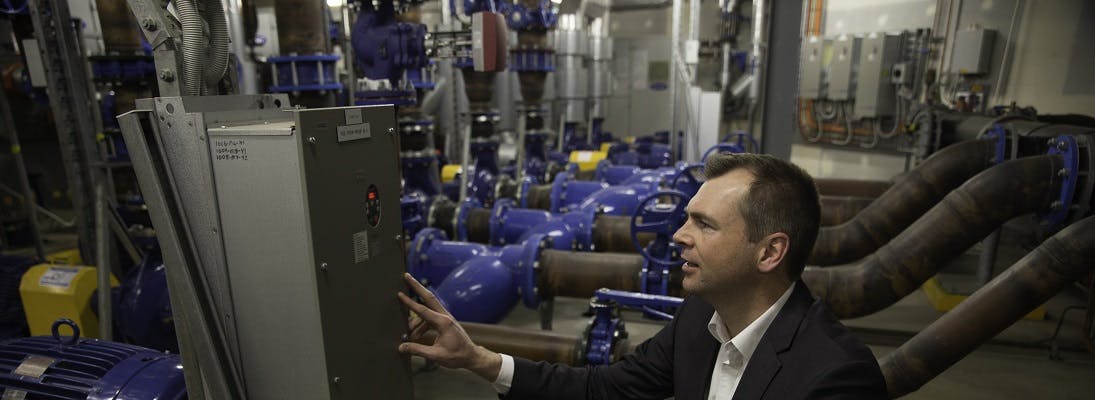Getting bang for buck on your industrial energy audit
August 21, 2020 / Quentin Roberts

With increasing business pressure to improve plant energy performance, it is natural to turn towards an energy audit as a means of identifying saving opportunities or to justify capital expenditure for a solution. While we agree that it pays to put forward a solid, data-backed business case for any energy management initiative, it is wise to research what an energy audit should provide so you aren’t left with a useless report and a big bill.
Not all energy audits are the same. Likewise, not all facilities are the same; your own unique context, operation size, product type, output, budget and variables will impact how you should approach energy management.
So in order to avoid wasted time and money, it will pay to investigate which level of audit (if any) is right for your situation – and then set some defined goals to ensure it doesn’t spin out of control.
Q. What are energy audits?
An energy audit is an assessment that identifies and prioritises opportunities for cost effective investments that will improve your energy performance.
The structure of an audit process and content is guided by the Australian Standard AS/NZS 3598.2:2014 as well as the International Standard ISO 50002:2014. There are basically three different levels of energy audits which can be summarised as follows:
- Basic energy audit
- Detailed energy audit
- Precision sub-system energy audit
Q. How do the energy audit levels differ?
Ok, very briefly:
- Basic audits provide broad ‘rule of thumb’ estimates of energy saving opportunities and are ideal for smaller operations or for any company getting started, as they’ll highlight where to target further effort.
- A detailed energy audit provides more in-depth analysis to support investment decisions.
- Precision assessments are most often used to assess a particular sub system, and as such sub-metering is often involved.
All audits will involve site visits, interviews with staff, data collection and analysis, and some sort of recommendations list.
The level of detail differs with each audit type and so does the accuracy of the recommendations. At the basic level the opportunities have an accuracy of around +/- 40% whereas a precision audit should achieve +/- 10% accuracy.
Q. Which level of audit is right for me?
Unfortunately there’s no one test you can take to determine which audit is best for your unique context. These audits serve different purposes depending on the stage an organisation is at in their energy management journey and the size and type of portfolio they have.
Obviously, the more in-depth an audit becomes the more costly it is. So it’s wise to make the investment into investigating opportunities that are most likely to bring a return and justify that investment. I personally prefer to do the basic (high-level) audits first, developing a clear action plan before investing too heavily.
Q. Does ‘basic’ audit mean it’s easy? – could I do something like this myself?
The term ’basic’ can give the impression that almost anyone could perform such an audit, but in reality, the more experience you have the better. An experienced auditor working with site staff, is able to pick up opportunities faster with less data to formulate a direction on what may or may not work. A less experienced practitioner will need more time and more data.
Q. Does an energy assessment typically include an action plan?
Not always, but it should provide the necessary content for one.
All levels of audit should provide some recommendations with an indication of level of complexity, cost to implement, and of course the estimated savings. The action plan is about prioritising the recommendations and ordering them according to when you will perform them. This will differ in each situation and it isn’t necessarily a matter of choosing the lowest payback items to do first.
Remember, it needs to align with the overall strategic objective of your organisation.
Q. How do I ensure the audit results are translated into business savings?
Once an action plan is developed, more effort should be targeted towards developing a business case for the opportunities most likely to yield returns.
The reality is that audits don’t save you money, the improvement projects do. So you must be able to present the project sponsor with the organisation-specific benefits in order to get funding and ultimately implementation. Typically, after performing a more detailed analysis, a robust business case can be developed which gives the project more likelihood of going ahead.
It is wise to indicate how the savings will be verified post-project to provide more confidence to the sponsor to make the investment.
The reality is that audits don’t save you money, the improvement projects do.
Q. What can energy audits do for industrial companies?
Audits for the industrial sector can look at anything from plant-wide energy consumption, energy efficiency of specific equipment, observations of processes and behavior, and interrogation of utility bills. Energy audits can provide the insights you need to enhance your operational efficiency and competitiveness. Every audit reveals some form of savings opportunity and helps you make well-informed decisions about reducing energy costs and improving both efficiency and productivity.
Q. Any final advice?
Energy audits can be a helpful way to identify energy saving opportunities or provide the data for a business case for an investment decision. But not all audits and company contexts are the same. Like any investment decision, start small, and use a basic audit to understand where more intensive analysis can be targeted.
Most importantly, ensure you make it clear that projects are the outcome versus a report with some nice charts. Take the time to clearly define the purpose behind your audit, especially within the context of your strategic approach to energy management.
